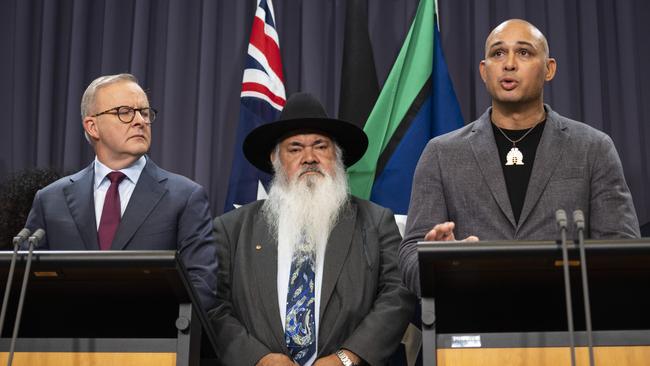
“You’re standing here talking up like you support all the black people in this country,” the heckler shouted. “You do not speak for me and my family, and you’re standing here speaking like you are the chosen voice. You are not the chosen voice.”
The incident, as recorded by left-wing journal New Matilda, illustrates the fragile assumptions behind Anthony Albanese’s assertion that the referendum is a response to “a gracious and generous offer that comes from First Nations people themselves”.
Last month he was challenged on this point on ABC Coffs Coast by Breakfast Show host Fiona Poole.
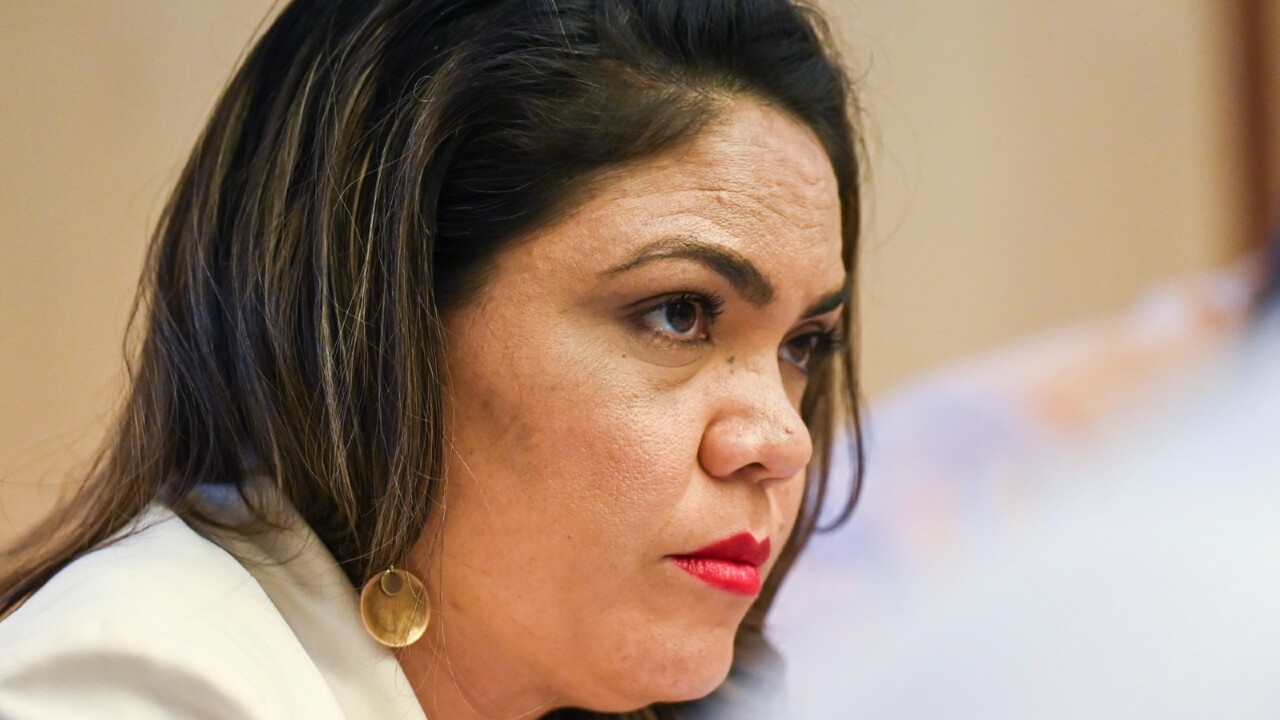
Poole: “Have you read the room right here? Do you think First Nations Australians actually want this?” PM: “First Nations people certainly want this. We know that all the figures show that up to 90 per cent of First Nations people …” Poole: “Where do you get that figure from?”
After struggling to identify a source for the data, Albanese claimed all Aboriginal leaders were on board, except, of course, for a couple of extreme conservatives and a maverick former Greens MP.
“If you look at Aunty Pat Anderson, you look at the Dodsons, you look at Noel Pearson, Marcia Langton, Tom Calma … you look at all of these Indigenous leaders … campaigning very strongly, as they have for a long period of time, for constitutional recognition,” Albanese said.
Those with more experience of Aboriginal culture than Albanese have learned to be cautious in picking leaders. The fluid and distributed leadership structure of traditional Aboriginal society described by 19th-century anthropologists renders the notion of a unified worldview absurd.
Do these high-profile leaders speak on behalf of the elders, honoured with the responsibility of passing their knowledge of cultural traditions, stories and wisdom to younger generations? Do they speak on behalf of clan leaders who are responsible for maintaining social order and resolving disputes? Do they speak on behalf of lawmen or law women, the spiritual leaders or the song men and song women?
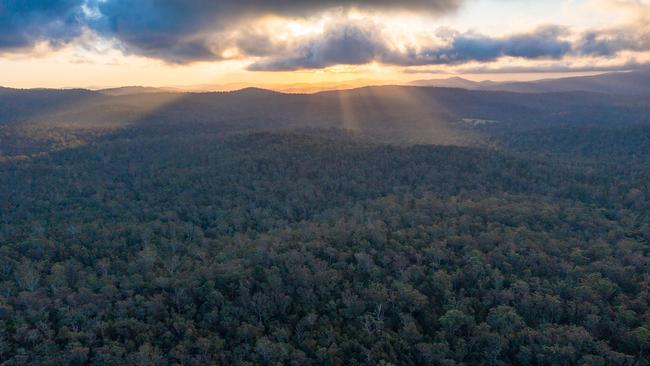
Or do they merely speak on behalf of that more recent creation, the national Aboriginal intellectual class, the knowledge keepers of an abstract notion of Aboriginality, complete with its totems and rituals, that serves as a mere representation of the diverse and complex belief systems held by those who remain attached to country?
Indigenous Australians who retain a traditional attachment to country, culture and spiritual meaning are the forgotten people in the voice debate.Their Aboriginality comes through bloodlines rather than through identity. Tribal allegiance comes from a shared attachment to a particular place, people and language. They struggle with the idea of a singular voice to represent them and hundreds of quite different groups to the state or federal parliaments.
“You can have anyone you’d like going there, but unless they’re from our country and understand our law and our stories and what’s sacred to us, it’s gonna mean nothing,” Jirrbal woman Georgina Wieden told me earlier this month when I spoke to her near her home on the Atherton Tableland. “You can send whoever you like there. Yeah, but unless they are one of us, they’re not gonna be telling our truth.”
Wieden is one of the Jirrbal people who are desperate to stop the destruction of parts of the Chalumbin Forest, an area of native wet eucalypt forest on the edge of a World Heritage area in the tropical highlands of North Queensland. Ironically, they were deprived of the authority to prevent Korean company Ark Energy from building giant wind turbines on sacred land by the 1993 Native Title Act. The Act handed that power to Prescribed Body Corporates, or land councils, established as trustees of collectively owned land.
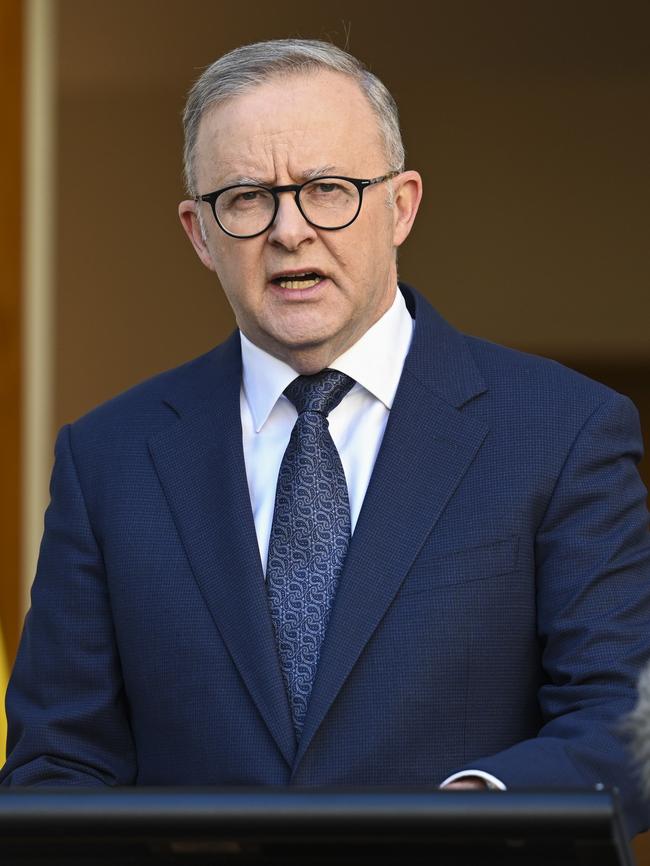
PBCs are only lightly accountable. Their committees are not elected by a general franchise like local government but by those who attend the annual general meeting. They are obliged to “consult”, but the process is ad hoc and subjective. PBCs are empowered to grant land use agreements and collect royalty cheques from miners or energy corporations. This commercial function frequently conflicts with the role of in-loco custodians of the land.
The Jirrbal people’s PBC is the Wabubadda Aboriginal Corporation, which took full-page advertisement in The Weekend Australian and The Sunday Mail in response to my column last week. The advertisement purported to correct “misinformation being spread in the media” about the Chalumbin turbine development. It claimed that the Jirrbal people had voted by a majority to authorise an Indigenous Land Use agreement with Ark Energy. There had been three community meetings and an authorisation meeting, the advertisement claimed.
“If people want to oppose the wind farm for valid reasons, they should be honest about it,” the advertisement said. “But don’t misrepresent the views of the majority of Jirrbal people. Our voice is our own.” The advertisement was authorised by Bradly Go-Sam, a local didgeridoo maker. There was no indication of who paid the bill.
The Jirrbal people I spoke to earlier this month strongly dispute the Corporation’s claim that it represents the Jirrbal majority.
Jirrbal woman Trish told me: “It’s my own Kakadu. Just the thought of it being taken away is devastating. It’s very cruel to First Nation people.” Would the voice to parliament be a chance to give her more say?
“No, I think it’s just another trick for what’s coming down the road. Something else is gonna happen. ”A voice to parliament worth its salt would tackle the hard stuff, like amending the Native Title Act to make PCBs more accountable to people like Trish and separate the responsibility for striking deals with developers and the stewardship of sacred land.
However, there is little hope of that when those who propose it are part of an unaccountable faction with an abiding vested interest in maintaining the status quo.
Nick Cater is senior fellow at the Menzies Research Centre.


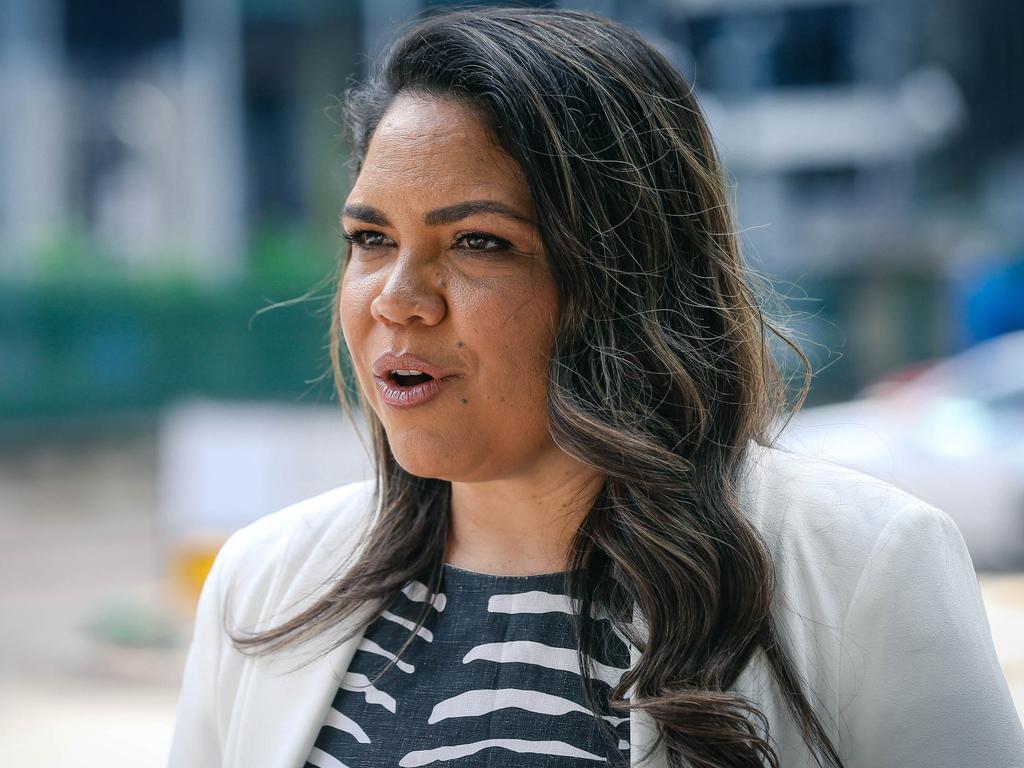
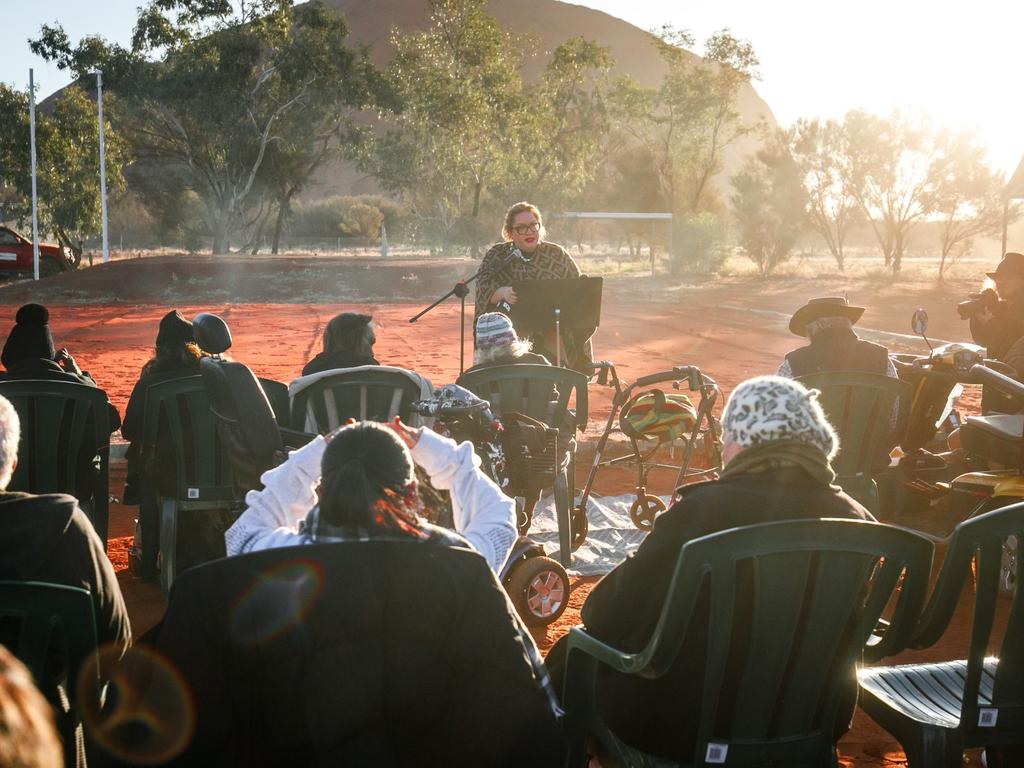
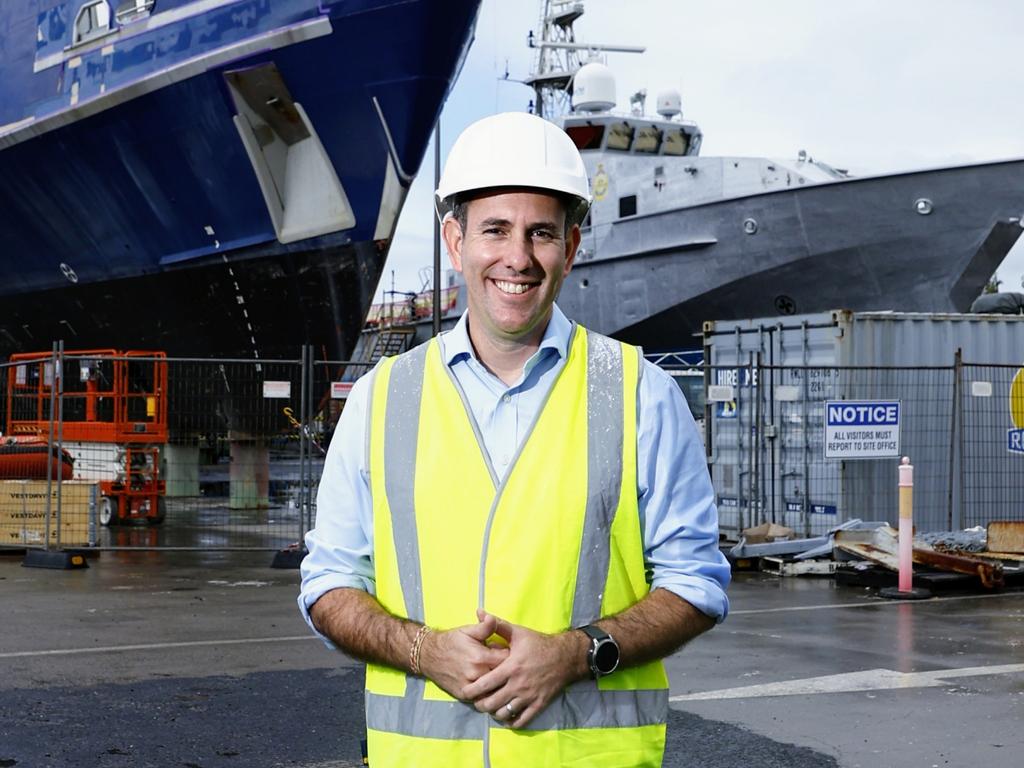



Even before he assumed a prominent role in the voice campaign, Noel Pearson was not without his critics. There was the occasion in late 2014 when Pearson was interrupted at a public lecture at the Queensland Conservatorium by a Murri man who told him he was “talking shit”.